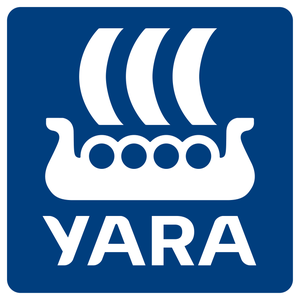
Yara's Crop Nutrition podcast
Yara
- 27 minutes 54 secondsYara's Incubator Farm Network: Part 2 - Almonds
In this part 2 of our Incubator Farm series, Devin Clarke, takes us to the Yara Almond Incubator Farm in Modesto, California, a pioneering site in the heart of California's Central Valley. The farm is part of a series dedicated to exploring innovative solutions that combine enhanced farm productivity with sustainable practices. This 80-acre farm, which also features a walnut grove, functions as a collaborative research hub.
Devin Clarke, Agronomy Solutions Manager at Yara North America and a member of the Strategic Ag Innovation Committee for the Almond Board of California, delves into the cutting-edge practices being tested on this farm. The focus of the discussion is on continuous fertigation, a method that optimizes nutrient delivery to almond trees based on weekly crop demand curves. This strategy not only improves nutrient use efficiency but also boosts yield and reduces disease incidence, such as whole rot.
Devin emphasizes the farm's role in pushing the boundaries of traditional almond farming by integrating innovative crop nutrition management strategies that enhance productivity and soil health. The episode also touches on the challenges of scaling these practices, including the need for better infrastructure and practical guidance to support the widespread adoption of continuous fertigation among growers.
Listeners will gain valuable insights into how collaborative efforts at the Yara Almond Incubator Farm are reshaping the future of nut farming, aligning technological advances with sustainable agricultural practices.
7 May 2024, 9:00 am - 25 minutes 45 secondsYara's Incubator Farm Network: Part 1 - Soil Health
This is the first in a series of episodes focused on the five incubator farms that Yara is managing in North America. Launched in 2019, the Yara Incubator Farms Network is not just a series of farms; it's a visionary project connecting the dots between farming practices and the global food chain. With over 600 acres across North America, these farms serve as a living laboratory where cutting-edge research in soil fertility and crop nutrient management is conducted. This isn't just about increasing yields; it's about revolutionizing how we approach food production in harmony with the environment.
At the core of this initiative is the commitment to a triple bottom line: achieving climate neutrality, fostering sustainable farming practices, and enhancing Prosperity—all while supporting the UN Sustainable Development Goals. Each farm within this network exemplifies Yara's dedication to these principles.
In this episode, we zoom in on a key player within this network—the Soil Health Incubator Farm in Auburn, Alabama. Situated within the EV Smith Research Station in collaboration with Auburn University, this 80-acre site serves as a prime example of how innovative farming practices can profoundly impact soil health and crop productivity.
Curt Knight, a Soil Health Agronomist at Yara, brings a wealth of knowledge with his Masters in Agronomy and soil science. Curt will shed light on the dynamic approaches being employed at the Auburn Incubator Farm to not only enhance soil health but also ensure profitable returns for farmers.
30 April 2024, 9:00 am - 42 minutes 55 secondsCan Soil Be as Essential as the Air We Breathe?
How important is the thin layer of crust on earth that we call soil? Dr. Rob Mikkelsen, Yara North America's Director of Agronomy, and soil science expert Professor John Havlin help us understand. Dr. Havlin's work has not only revolutionized grape cultivation in North Carolina but also advanced sustainable farming practices worldwide.
In this episode, we discuss the evolution of soil fertility practices, the impact of nutrient management on crop quality, and the significance of long-term agricultural trials. We'll also delve into Professor Havlin's intriguing research on wine grapes and how soil health drives the growing wine industry in North Carolina.
Nutrient management can become an opportunity for environmental stewardship.
Some Takeaways:
- Soil science is crucial for sustainable agriculture and the future of food production.
- Nutrient management and long-term trials play a significant role in improving farming practices.
- The book 'Soil Fertility and Fertilizer' has evolved over the years to address changing agricultural practices and environmental concerns.
- There is a need for more young people to pursue careers in soil science and agriculture.
- Teaching quantitative skills in soil science is a challenge but essential for understanding the science behind soil health and fertility. The work with wine grapes in North Carolina has been the most exciting and rewarding for John Havlin.
- Nutrient management, particularly nitrogen application, plays a crucial role in improving the quality of wine grapes.
- Soil health and fertility are essential for successful grape growing.
- The grape industry in North Carolina has grown significantly in the past few decades.
Dr. Havlin holds the position of professor and extension specialist in Crop & Soil Sciences at North Carolina State University. He has also served as the past president of the Soil Science Society of America. Dedicated to raising awareness about soil's crucial role, Dr. Havlin's efforts have contributed to the establishment of the House of Representatives Soils Caucus and a $4 million educational exhibit at the Smithsonian, which opened in 2008. This exhibit aims to educate the museum’s six million annual visitors on how soil is fundamentally connected to human health, environmental sustainability, and planetary well-being.
To learn more check out these links:
- Document for the Carolina Geological Society (2022)
- Journal article summarizing some of our vineyard nutrient management research (2022), which will serve as the basis for an Extension product coming out later this year.
23 April 2024, 9:00 am - 35 minutes 15 secondsCurrent Events in Ag: What We Need to Know
In this episode of the Yara Crop Nutrition Podcast is a little different. We talk with Taylor Chalstrom, the dynamic managing editor of My Ag Life and host of the My Ag Life podcast. My Ag Life is a cornerstone resource dedicated to enriching the agricultural community in the Western United States with cutting-edge information. We talk about crucial topics such as soil health, the emerging role of biostimulants, advancements in agricultural technology, the intricacies of integrated pest management, and the criticality of effective water management.
Links and Resources:
Connect with Us:
We love hearing from our listeners! Share your feedback, questions, or suggestions with us on our social media channels or HERE
19 March 2024, 9:00 am - 38 minutes 26 secondsUnlocking Nitrogen Use EfficiencyDr. Jim Camberado discusses nitrogen use efficiency in crop production. Dr. Camberado shares his experience working with crops such as corn, soybeans, wheat, cotton, and the challenges in executing nitrogen use efficiency. He emphasizes the importance of nitrogen use efficiency due to the dynamic nature of nitrogen in the soil and its impact on crop productivity. Dr. Camberado also addresses misconceptions about nitrogen use efficiency and provides insights into optimizing nitrogen application during uncertain pricing.
Dr. Camberado's achievements include significant awards from the American Society of Agronomy and impactful roles at both Purdue and Clemson University.
Dr. Camberato's work focuses on developing and disseminating nutrient use recommendations to enhance agricultural productivity. As a member of leading societies like the Soil Science Society of America, his expertise is invaluable to the farming community. Join us as we delve into the intricacies of nitrogen management with an expert in the field.
Useful Links:
- Perdue University's Soil Fertility site
- Some of Dr. Camberado's publications
5 March 2024, 10:00 am - 44 minutes 59 secondsSustainable Wine Growing: The Future?What does it take to grow the perfect grape? Find out in today’s episode with Stan Grant, a vineyard specialist with decades of experience in the grape-growing industry. We discuss Stan's journey into grape growing, the biggest issue in grape nutrition, balancing yield and quality, changes in grape growing practices, creating a crop nutrition plan, differentiating grape varieties for wine, table grapes, and raisins, the challenges and future of the grape industry, and Stan's publications and speaking engagements. Takeaways
- Grapevines require a balanced approach to nutrition and stress management to achieve high-quality yields.
- Mechanization and precision fertigation have revolutionized grape growing practices, allowing for more efficient use of resources.
- Different grape varieties are cultivated for wine, table grapes, and raisins, each with specific production goals and management practices.
- The grape industry faces challenges such as labor shortages, water availability, and disease management, but innovation and efficiency can help overcome these obstacles.
- Stan Grant's expertise and contributions to the grape industry have been instrumental in raising the level of knowledge and improving practices.
Useful Links that we mentioned
27 February 2024, 10:00 am - 41 minutes 35 secondspH Puzzle: Understanding and Combatting Soil AcidificationIn recent years, we have seen a rise in soil acidification. Today's episode discusses the causes, signs, and effects of soil acidification, as well as strategies for mitigation, adaptation, and prevention (MAP). Joining Yara's Dr. Rob Mikkelsen is Dr. Clain Jones, renowned Montana State University Extension soil fertility specialist and Dr. Manbir Rakkar, Assistant Professor at Ohio State University who help us understand the significance of soil pH changes. Soil acidification can be caused by natural factors such as high rainfall and unbuffered rock, as well as human activities like nitrogen fertilizer application. Signs of soil acidification include stunted plant growth, nutrient deficiencies, herbicide damage, and increased fungal disease occurrence. Regular soil testing is crucial for monitoring soil pH and detecting acidification. Alternative methods for soil pH testing, such as pH sticks and remote sensing technology, can also be used. Preventing soil acidification can involve improving nitrogen use efficiency and incorporating legume crops or perennials into cropping systems. Mitigation strategies include applying lime and changing crop rotation. It is important to manage soil acidification to maintain soil and plant health and prevent long-term yield losses. Variable rate lime application and site-specific monitoring of pH can help optimize lime usage. Check out the video, "Acidification of Cropland Soil: Impact, Causes, and Solutions" that Dr. Jones created that helps explain the soil acidification issue. Read the article, "The Implication of Soil Acidity and Management Options for Sustainable Crop Production in Africa"30 January 2024, 10:00 am
- 46 minutes 43 secondsAshes to Agriculture: The Ancient Roots of Potash
This episode explores the history, development, and sustainability of the potash industry. We are joined by Dr. Davide Ciceri, who currently leads innovative R&D at AgroPlantae, Inc. and Yara’s Director of Agronomy, Dr. Rob Mikkelsen.
We begin with the origins of potash, which can be traced back to ancient methods of extracting potassium compounds from wood ashes. The conversation then delves into the development of the potash fertilizer industry, highlighting the work of chemist von Liebig and the commercial mining of potash in Germany. The different methods of potash mining, including underground mining and solution mining, are discussed. The conversation also explores the sustainability of potash resources and the potential for alternative sources of potassium. The importance of considering the right source of potassium for specific crops and soil conditions is emphasized. The conversation concludes with a discussion on the historical significance of potash and the ongoing research and development in the industry.
Dr. Ciceri wrote an insightful article, “Historical and Technical Developments of Potassium Resources.”
Here are the links to our other episodes on the history of fertilizers: - The Alchemy of Air with Author Thomas Hager - The History and Future of Phosphorus for Plants - An Unsung Hero: Norman Borlaug
Here is a beautiful photo of the potash evaporation ponds near Moab, Utah
23 January 2024, 10:00 am - 30 minutes 49 secondsSafety First: Navigating the Complexities of Liquid Fertilizer Blending
In this episode, the hosts discuss the benefits and challenges of using liquid fertilizers. Dr. Karl Wyant, Director of Agronomy at Nutrien, and Dr. Rob Mikkelsen, Director of Agronomy at Yara, explain how liquid fertilizers offer more flexibility in creating customized nutrient formulations tailored to specific crop needs. They emphasize the importance of understanding compatibility and safety when blending and handling liquid fertilizers. We discuss the concept of suspension and solution fertilizers and discuss the differences between them. Highlighed is the significance of pre-planning, jar testing, and using resources like compatibility tables and Yara's Tankmix to avoid mixing issues. They provide insights on storing and maintaining liquid fertilizers and discuss future innovations in the field.
Takeaways
- Liquid fertilizers offer flexibility in creating customized nutrient formulations for specific crops.
- Understanding compatibility and safety is crucial when blending and handling liquid fertilizers.
- Jar testing is an important tool to predict compatibility and avoid mixing issues.
- Proper storage and maintenance of liquid fertilizers are essential to ensure their effectiveness.
Links:
- Karl's recent article in Fertilizer International Magazine, "Liquid Fertilizers - Compatibility and Safety"
- Karl mentioned the Fluid Fertilizer Foundation as a resource
- Yara's Tankmix to avoid mixing issues
Chapters
00:00 Introduction to liquid fertilizers 04:30 Challenges of liquid fertilizer mixing 06:44 Difference between suspension and solution fertilizers 10:23 Importance of knowing suspension and solution fertilizers 12:13 The importance of jar testing 18:36 Storage and maintenance of liquid fertilizers 21:37 Storing liquid fertilizers over the winter 23:40 Maintenance and cleaning of fertilizer tanks 26:38 Future innovations in liquid fertilizers 31:41 Conclusion and holiday wishes
10 January 2024, 10:00 am - 26 minutes 52 secondsHow can Foliar-Applied Nutrition help with Water Usage?
In the dynamic world of crop production, staying ahead means understanding not just the 'how' but the 'why' behind effective agronomics. And that's exactly what we're unpacking in this episode. Foliar nutrition is more than just a trend; it’s a pivotal part of modern agriculture, offering targeted, efficient, and quick nutrient delivery to your crops.
We'll explore the science behind foliar feeding,
- how it complements traditional soil nutrition,
- its role in maximizing crop health and yield.
- how folier applied nutrition can help plants in drought conditions
To help us understand this we have two experts: Dr. Rob Mikkelsen, Yara North America's Director of Agronomy and Delaine Madziak, Regional Market Development Manager for Western Canada. They are going to relate real-world case studies, and practical tips that you, as a grower or agronomist, can apply in your fields.
19 December 2023, 10:00 am - 31 minutes 39 secondsBeyond the Basics: Furthering the 4Rs of Nutrient Stewardship
How can furthering the practices of the 4R nutrient management, transform not only agricultural productivity but also contribute significantly to environmental sustainability and climate change mitigation?
Dr. Tom Bruulsema, Chief Scientist at Plant Nutrition Canada, and Yara’s Director Of Agronomy, Dr. Rob Mikkelsen are back with us to talk about the advancement of the 4Rs of Nutrient Stewardship.
In addition to Dr. Bruulsema's many jobs, he is also a committee member at the Scientific Panel on Responsible Plant Nutrition or SPRPN.
In a previous episode with Tom, we talked about the ambitious mandate by the Canadian government to cut fertilizer-related greenhouse emissions by 30% by the year 2030. We talked about the critical role of the R's of nutrient stewardship (rate, source, timing, and placement) in curbing emissions and enhancing nitrogen use efficiency.
In this episode, we will explore why there's a pressing need to further the 4Rs. We'll discuss how the 4R concept has been integrated into agricultural conversations worldwide and examine its impact over the past decade in North America and globally.
We'll also address the idea proposed by Paul Fixen in an earlier podcast about adding more "R's" to the existing framework.
5 December 2023, 10:00 am - More Episodes? Get the App
Your feedback is valuable to us. Should you encounter any bugs, glitches, lack of functionality or other problems, please email us on [email protected] or join Moon.FM Telegram Group where you can talk directly to the dev team who are happy to answer any queries.
 The Jordan B. Peterson Podcast
The Jordan B. Peterson Podcast
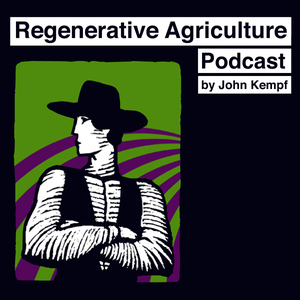 Regenerative Agriculture Podcast
Regenerative Agriculture Podcast
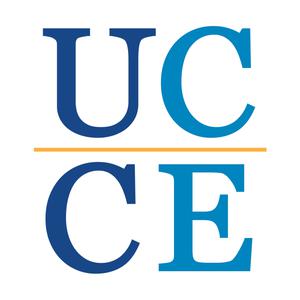 Growing the Valley
Growing the Valley
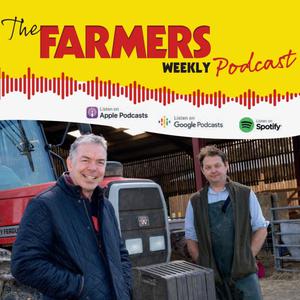 The Farmers Weekly Podcast
The Farmers Weekly Podcast
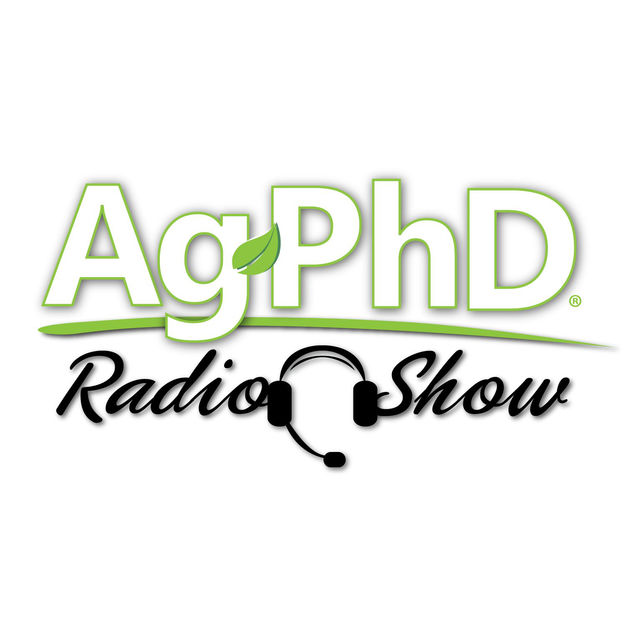 Ag PhD Radio on SiriusXM 147
Ag PhD Radio on SiriusXM 147